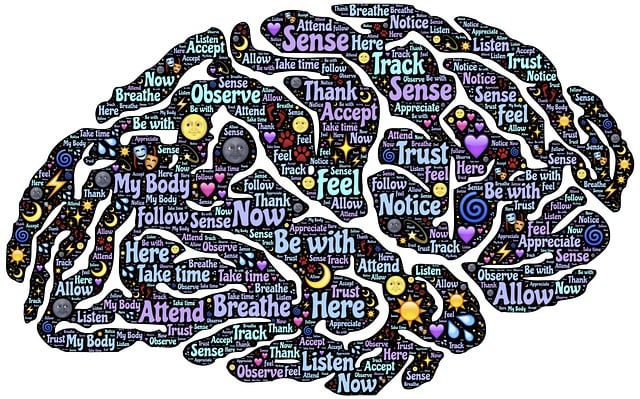Longmont Conduct Disorder Therapy focuses on teaching coping skills to manage emotions and challenges, using techniques like self-care, emotional regulation, trigger identification, anger management, and problem-solving. Assessment of individual needs is crucial, involving conversations, assessments, and observation to understand coping mechanisms. Programs like Social Skills Training (SST) and Community Outreach enhance social integration and self-regulation. Coping skills development is an ongoing process requiring reflection, positive thinking, and effective communication strategies for long-term maintenance.
Coping skills development is a critical component of treating conduct disorder, especially within the context of Longmont Conduct Disorder Therapy. This comprehensive guide explores the significance of coping skills in addressing behavioral issues, offering insights into tailored strategies for each client. We delve into practical techniques to foster healthy coping mechanisms, emphasizing their long-term maintenance for sustainable progress. Understanding and assessing individual needs are key to successful interventions, ensuring clients equipped with effective tools thrive in Longmont Conduct Disorder Therapy.
- Understanding Coping Skills and Their Significance in Treating Conduct Disorder
- Assessing Individual Needs: Identifying Effective Coping Strategies for Each Client
- Practical Techniques to Foster Healthy Coping Skills in Longmont Conduct Disorder Therapy
- Long-Term Maintenance: Ensuring Sustainability of Coping Skills Development
Understanding Coping Skills and Their Significance in Treating Conduct Disorder

Coping skills are essential strategies that individuals learn to manage and overcome challenging situations, emotions, or stressors. In the context of Longmont Conduct Disorder Therapy, understanding and cultivating effective coping mechanisms is pivotal in addressing this behavioral disorder. Conduct disorder is characterized by repeated and persistent patterns of behavior where an individual violates rights of others or societal norms, often leading to significant impairment in daily functioning.
By integrating self-care practices and emotional regulation techniques into therapy, professionals aim to empower individuals with conduct disorders to cope healthily. This includes teaching them to identify triggers, manage anger, reduce impulsivity, and develop problem-solving skills. Through these coping strategies, the focus shifts from merely suppressing symptoms to fostering overall well-being and minimizing the impact of mental illness stigma reduction efforts.
Assessing Individual Needs: Identifying Effective Coping Strategies for Each Client

Assessing individual needs is a critical step in developing coping skills tailored to each client. Longmont Conduct Disorder Therapy professionals begin by evaluating clients’ unique circumstances, including their personal histories, emotional triggers, and existing support systems. This process involves open-ended conversations, standardized assessments, and observational techniques to gain insights into their coping mechanisms, both healthy and unhealthy. By understanding the specific challenges they face, therapists can design targeted interventions that address root causes rather than merely treating symptoms.
Effective coping strategy identification is based on this nuanced understanding of each client’s needs. For some, stress reduction methods like mindfulness meditation or progressive muscle relaxation may be beneficial. Others might require social skills training to build healthier relationships and enhance their support network. Still, for those struggling with burnout prevention, cognitive-behavioral techniques can help reframe negative thought patterns and promote resilience. This personalized approach ensures that the coping strategies employed are not only effective but also sustainable in the long term.
Practical Techniques to Foster Healthy Coping Skills in Longmont Conduct Disorder Therapy

In Longmont Conduct Disorder Therapy, practical techniques are integral to fostering healthy coping skills in individuals. One effective approach involves incorporating Social Skills Training (SST), which equips clients with age-appropriate strategies to navigate social interactions successfully. Through role-playing and group discussions, SST helps individuals learn to express emotions, assert needs, and resolve conflicts peacefully.
Additionally, a Community Outreach Program Implementation can significantly enhance coping abilities. By engaging in community activities and building supportive relationships, individuals with conduct disorders learn valuable lessons in empathy, accountability, and self-regulation. These experiences not only foster social integration but also serve as burnout prevention strategies for healthcare providers, ensuring a holistic and sustainable therapeutic process.
Long-Term Maintenance: Ensuring Sustainability of Coping Skills Development

The journey of coping skills development is not merely a short-term endeavor but requires consistent effort and practice for long-term maintenance. Once individuals learn effective strategies to navigate stress, anxiety, or challenging situations, it’s crucial to integrate these skills into their daily lives to ensure sustainability. This process involves several key aspects.
Regular reflection and self-awareness are essential tools for longmont conduct disorder therapy. By dedicating time for introspection, individuals can identify triggers and emotional patterns, allowing them to proactively apply coping mechanisms. Encouraging positive thinking and fostering mental wellness through podcasts or other media can reinforce healthy habits. Additionally, communication strategies play a vital role in maintaining these skills by providing avenues to express emotions and seek support when needed. Through continuous practice and adaptation, the benefits of coping skills development can endure, promoting overall resilience and well-being.
Coping skills development is a pivotal aspect of treating conduct disorder, as it equips individuals with healthy strategies to navigate challenges. By understanding the significance of these skills and assessing unique client needs, therapists in Longmont Conduct Disorder Therapy can tailor practical techniques for sustainable change. Through consistent practice, individuals gain resilience, enhancing their ability to manage emotions and make positive choices, ultimately fostering a brighter future.














